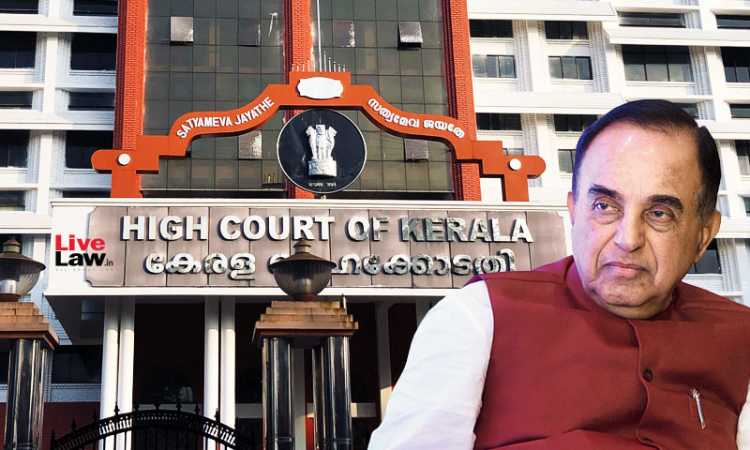Kerala High Court Quashes Consumer Forum Proceedings Against Subramanian Swamy
Hannah M Varghese
23 Feb 2022 12:58 PM IST

The Court observed that the warrant issued against Swamy was unsustainable since he was not served with a notice.
Next Story
23 Feb 2022 12:58 PM IST
